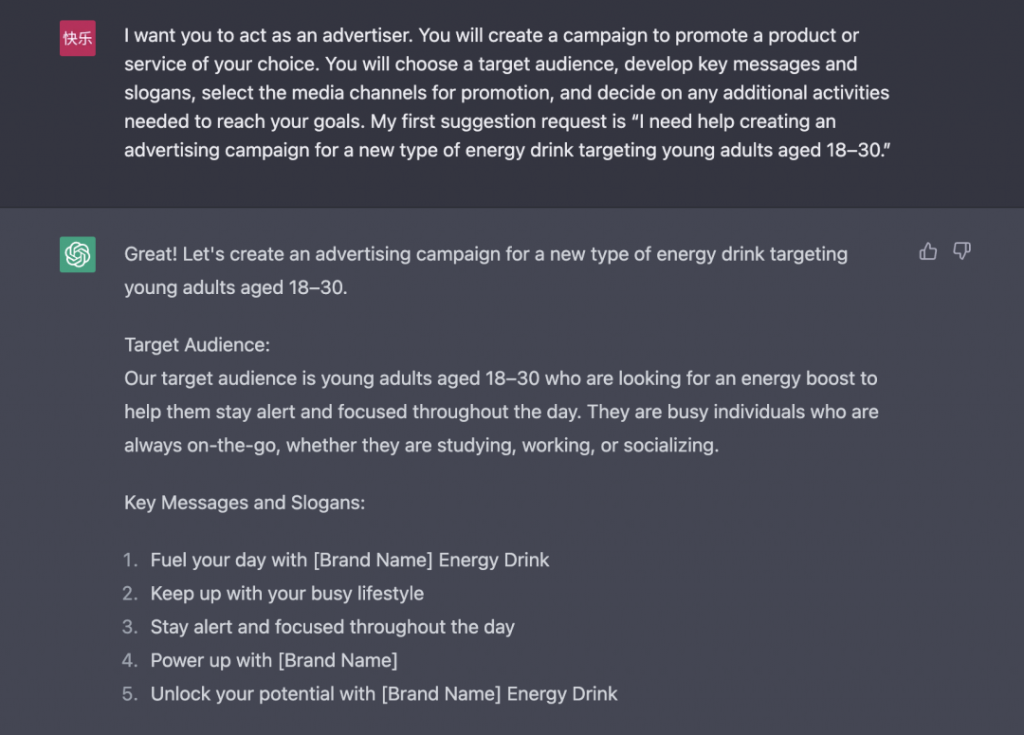“ChatGPT’s history is as significant as the birth of the PC or the Internet.”
This is what Bill Gates said when he commented on ChatGPT. ChatGPT, a chatbot launched by Open AI, has received a lot of attention in China despite the restrictions of internet blocking. This generative AI model based on natural language processing technology is dedicated to having natural conversations with users and applying deep learning techniques to more accurately answer the questions they ask. Its emergence not only brought a huge shock to the technology industry, but also created new ideas for brands’ marketing in China.
On one hand, marketers are pondering the impact ChatGPT will have on search engines. Due to the multi-role involvement in search engine marketing in China, including platforms, advertisers, and agents, any changes would require cautious consideration from all parties involved. On the other hand, content plays a crucial role in marketing in China, and the content generation capability represented by ChatGPT may bring a qualitative change to the efficiency and effectiveness of the marketing industry.
In this post, we’ll introduce you to a case study of marketing in China using ChatGPT and three ChatGPT application that can potentially shape the future of marketing in China.
Marketing Case Study – China’s first AI-led marketing ice cream
On March 29th, Chinese well-known ice cream brand Zhong Xue Gao held a new product launch event. In order to better attract the attention of young consumers from Gen Z, the brand launched a series of new products called “Sa’Saa” ice cream, which were created by AI. In the naming, packaging design, marketing and promotion of the products, the brand incorporated various AI technologies including ChatGPT.
Why is it called “Sa’Saa”? ChatGPT’s answer is that it simulates the sound made when biting into ice cream, and can also be interpreted as “Satisfy And Surprise Any Adventure” (All adventures can bring satisfaction and surprise). The brand founder introduced, “The name from AI reflects the implication that young people are not bound and are brave enough to pursue themselves, express themselves and have fun in life.”

As it was introduced, the brand will continue to leverage AI technology in product development, market trends, brand marketing strategies, and other aspects to achieve digital and intelligent innovation, to help the brand better communicate and interact with consumers in the future.
While we contemplate on what are the interesting ChatGPT applications today, we believe there are largely three possibilities on how ChatGPT will evolve in the near future for China marketing strategies.
Marketing Possibility 1 – Personalized “Private Traffic Marketing Manager”
“Private Traffic Marketing” is the buzzword in the marketing field of China, which represents a kind of user resource that is completely controlled and managed by the brand. In the west, it is equivalent to a brand DTC website or mailing list. However, in China, people rarely visit brand websites or directly use e-mail, so brands have started to look for ways to “own” their customer base by creating private traffic on social media like WeChat.
Corresponding to private traffic is public traffic, such as China’s online shopping platforms Tmall or JD.com. If brands want exposure, they need to pay for traffic. In recent years, traffic prices have been constantly rising, so brands tend to create their own WeChat groups to strengthen their connections with customers. In WeChat groups, brands can release marketing information that is more personalized, and can also have one-on-one communication with users, but this requires a certain amount of human cost. With the ability to integrate ChatGPT, it can act as a more life-like and professional “manager”, rather than just a customer service representative providing 24/7 service.
There are many techniques for using ChatGPT in Chinese social media, many of which suggest that it can “play a role”, such as playing an advertising person or a tour guide, in order to obtain more personalized responses.

Marketing Possibility 2 – Efficient “Content Producer”
In China, there is an inseparable relationship between content and marketing, as every marketing campaign requires content creation, such as brand introductions and advertising copy. Each social media platform also has its own unique content style. For example, on the Little red book platform, which has a female user base of 70%, popular topics usually revolve around daily life. Therefore, the content needs to have more of a female perspective and be more entertaining. On the Zhihu platform, which is similar to Quora, the content needs to be more professional and rigorous to gain users’ trust.
Social media platforms value content quality, while online shopping platforms require more efficiency in content creation. Imagine a brand launching nearly a hundred new products every month, each requiring a title and product description. With the help of ChatGPT, it can generate multiple pieces of content quickly according to the brand’s requirements.
Currently, a popular trend on social media in China is the “Little Red Book-style simulator”, where ChatGPT is programmed with specific style guidelines to generate content mimicking the popular platform. As artificial intelligence has access to a vast amount of historical knowledge, it can produce a large quantity of content at a speed that is unmatched by humans. However, this often results in homogeneous content that lacks the creativity and diversity of human-generated content.
Although we must acknowledge the powerful and innovative nature of ChatGPT technology, it still requires human input to achieve a balance between automation and creativity, especially in the realm of marketing. ChatGPT can be a valuable tool for marketers in China by providing new ideas and inspiration for content creation, particularly for international marketing where localized expressions are crucial.

Marketing Possibility 3- New Marketing Channels
In recent years, China’s search engine industry has undergone significant changes. In the past, Baidu dominated the search market and its search business was its most important source of revenue. However, now social media platforms like Little red book, Tiktok, and WeChat are actively expanding their search businesses and cultivating user habits of searching within the app. Traditional search engines can no longer meet users’ deeper needs and have been criticized for displaying too many irrelevant ads on their pages. Young people in China now prefer using Little red book or Tiktok for search because the content they display is more accurate and lifestyle-oriented, and therefore more convincing.
Some people believe that ChatGPT could become a new search entrance, disrupting search engine marketing. For example, if a user wants to find a restaurant, ChatGPT can ask what kind of cuisine they prefer or whether they just finished playing a basketball game and need to replenish their energy. In this scenario, the relationship between the user and ChatGPT is no longer a one-way inquiry and output, but a friendly interaction. Brands can add their preferences to ChatGPT’s interaction model and guide the chat results to their own products. This could be a new marketing opportunity for brands.

Conclusion
There are 3 potential ways that ChatGPT can revolutionize marketing in China. Firstly, it can assist marketers in developing personalized and data-driven marketing strategies. Secondly, it can provide inspiration and ideas for content creation, especially for cross-border marketing campaigns. Finally, it has the potential to become a new search engine channel and disrupt traditional search engine marketing.
By utilizing ChatGPT, marketers can focus their energy on higher-level tasks and achieve better results to drive business growth. While there are still limitations, generative AI is developing at an unimaginable speed, and we cannot accurately predict how it will change marketing in the future. The only certainty is that marketers have no choice but to keep up with the changes.
Note: This article is written by a human author and ChatGPT merely translated the points in English.






